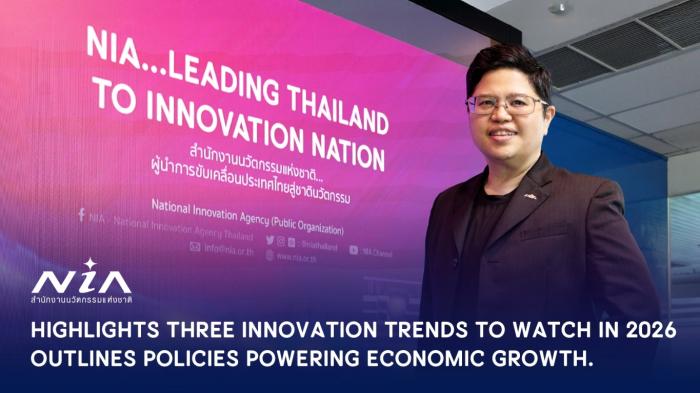Ruckus Networks Announces Inaugural Asia Pacific State of Wi-Fi Study
Administrator Kamis, 06 September 2018 16:49 WIB

Wi-Fi connectivity downtime results in USD$51 million in business losses and dramatically impacts a company's brand reputationUser experience is crucial in today's hyper-connected environmentBusiness and IT leaders are unaware of Wi-Fi security issues
SINGAPORE - - September 6, 2018 - Ruckus Networks, an ARRIS company, today unveiled its inaugural Asia Pacific (APAC) State of Wi-Fi Study, which revealed that connectivity downtime has caused a total loss of USD$51 million over the past year for respondents of the organizations surveyed.
The study focused on determining the value of Wi-Fi in organizations, as well as identifying usage trends, and Wi-Fi issues and expectations. It surveyed 1,200 business and IT leaders across eight markets in APAC, including China, Hong Kong, Taiwan, Australia, Japan, India, Singapore and Indonesia.
Respondents were made up of employees responsible for IT decision-making or implementing IT-related initiatives for mid- to large-sized organizations with over 250 staff.
"Wi-Fi is the foundation of Asia Pacific's burgeoning digital economy. It is not only a productivity tool that empowers employees to work and collaborate better, it is also a platform that enables organizations to interact directly with their customers via apps, websites and other digital services on the Internet," said William Ho, senior vice president, Asia Pacific and Japan, ARRIS.
"Given the vital role that Wi-Fi plays in supporting an organizations' fundamental operations and new digital initiatives, Wi-Fi downtime can cause significant disruption, leading to losses in revenue, productivity and other growth opportunities in today's dynamic and competitive digital environment."
Wi-Fi Downtime Cause Significant Losses
Connectivity downtime has impacted the bottom line of the organizations surveyed. Close to one in two APAC organizations (47%) experienced at least six instances of connectivity downtime over the last 12 months, with nearly one in ten (9%) of them indicating they have experienced over 20 instances of connectivity downtime.
In comparison, only 29% of respondents in Singapore indicated that they have experienced at least six instances of connectivity downtime over the last 12 months.
In addition to the productivity loss that connectivity downtime and other network-related issues create, organizations are unable to accelerate new digital innovations and transform themselves with Wi-Fi downtime.
More than one-third (37%) of the IT departments in APAC and Singapore organizations need to spend a week or more each month to manage Wi-Fi or network-related issues. This diverts time and resources away from the IT department, hindering them from implementing new initiatives that could help the organizations drive and deliver new digital products, services, and revenue models.
Furthermore, nine in ten business and IT leaders in APAC (90%) and Singapore (89%) agree that a bad Wi-Fi experience will negatively affect the brand reputation. This comes as no surprise as Wi-Fi is often the first and most fundamental point of interaction between an organization and its customers.
User Experience is the Main Concern for Wi-Fi
Adding another layer of challenge to potential connectivity issues are the bandwidth demands being driven by streaming videos, multiple personal devices and more.
According to the study, more than half of the business and IT leaders in APAC (58%) and Singapore (54%) are using streaming videos or voice calls through Wi-Fi. Multimedia content and the proliferation of connected devices are key drivers for high-speed, reliable connectivity in today's Wi-Fi user experience.
Nearly half of the respondents in APAC (49%) and Singapore (43%) reported they carry at least four Wi-Fi capable devices including smartphones, tablets, laptops and smart watches.
These trends also mirror another finding from the study suggesting that business and IT leaders across APAC (76%) and Singapore (80%) indicate that slow Wi-Fi connection speeds are at the top of their list of concerns, followed by limited coverage area and connection drops.
However, there is considerable room for improvement with public Wi-Fi. In fact, less than one in four (24%) of these respondents in APAC and Singapore had a good experience with public Wi-Fi. As a result, only 14% of users in APAC and 17% in Singapore connect to public Wi-Fi most or all the time.
This highlights a significant gap that needs to be improved before APAC and Singapore can create a truly mobile workforce.
"Business and IT leaders today not only expect fast Wi-Fi, but they also rely on a seamless and dependable Wi-Fi experience while they are travelling, in the office or at a public venue. These attributes enable them to have the freedom to work anywhere, anytime and ensure a high level of productivity," said Ho.
"Establishing great Wi-Fi connectivity with superior user experience is the basis of flexible work practices and a connected global economy."
Wi-Fi in Organizations is Not as Secure as Business and IT Leaders Think
According to the study, more than half (53%) of respondents in APAC and Singapore rated the current state of Wi-Fi security in their organization as good or very good, indicating a moderate level of confidence in their organizations' Wi-Fi security posture.
However, close to one in five (19%) of the APAC respondents indicated that they have an open Wi-Fi network with no secure login measures. In Singapore, 21% of respondents use open networks.
In the same vein, in APAC and Singapore, more than three in five (65%) APAC and Singapore organizations only use basic usernames and passwords to provide Wi-Fi access. At the same time, most of the business and IT leaders indicated that their home Wi-Fi connections are either open or use a basic username and password combination to protect the network.
These findings not only illustrate a misplaced sense of confidence that leaders have in their Wi-Fi security but also demonstrate that they have a sloppy approach to securing their Wi-Fi. Although, when it comes to IT and business leaders connecting to unfamiliar Wi-Fi networks, they became more vigilant about security.
Approximately four in five (83%) APAC and Singapore (78%) respondents indicated an insecure connection as one of the top three concerns they have when connecting to public Wi-Fi.
These findings illustrate that security is top of mind for these decision-makers, but they are complacent when it comes to Wi-Fi security for networks they own or are familiar with in their environment. (mor/roc)
Berita Terkait
-

business
Gaw Capital Acquires Korea's Leading Waste Management Firm Koentec as First Waste Management Infrastructure Investment
-

business
NIA Highlights Key Innovation Trends for 2026, Spotlighting Innovation Policies Driving Thailand's Economy and Society
-

business
Point Hope Announces Launch of the Anchor Generational Assets Fund
-

business
FLAsia 2026, Asia's Leading Franchising and Licensing Show, Returns with New Vision at the Helm
-

business
Hong Kong Economic Policy Green Paper 2026 by HKU Business School Focuses on New Opportunities for Hong Kong's Economy
-

business
AFERIY Unveils Next-Generation Portable Power Station Nomad1800 at CES
Komentar
0 Komentar
Silakan Login untuk memberikan komentar.
FB Comments






